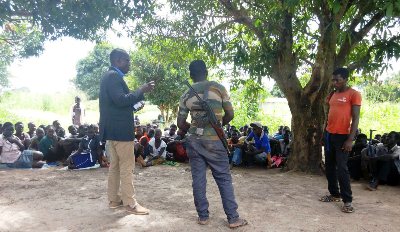Disarmament and reintegration of child soldiers on in W. Equatoria
October 15, 2017 (JUBA) – Talks on the disarmament and reintegration of ex-opposition fighters, including child soldiers, back into their communities in South Sudan’s Western Equatoria region are ongoing.

Last week, representatives from the United Nations Mission in South Sudan (UNMISS), United Nations Children Fund (UNICEF) and the National Disarmament, Demobilization and Reintegration Commission reportedly travelled to the area to assess the progress being made in disarming and reintegrating the ex-combatants.
The visit, a South Sudanese officials said, follows a peace deal signed last year between the state government and the former fighters. The focus of the trip was to verify the demobilization of children from the armed ranks.
“We came to Yambio to see for ourselves the signed peace between the government and the SSNLM in Western Equatoria and to look specifically at the issue of the children associated with the two armed groups,” said the Commission’s acting chairperson, Claude Akasha.
“We are talking to the children, trying to mobilize them and tell them that the most important thing in their life is to be out of the army, to be with their families, in order for them to grow up in a normal family environment and get training for their future,” he added.
The Chief of the UNMISS Child Protection Unit, Alfred Orono, pledged the Mission’s support for reintegrating the children into their communities and helping them return to school or access training.
(ST)
